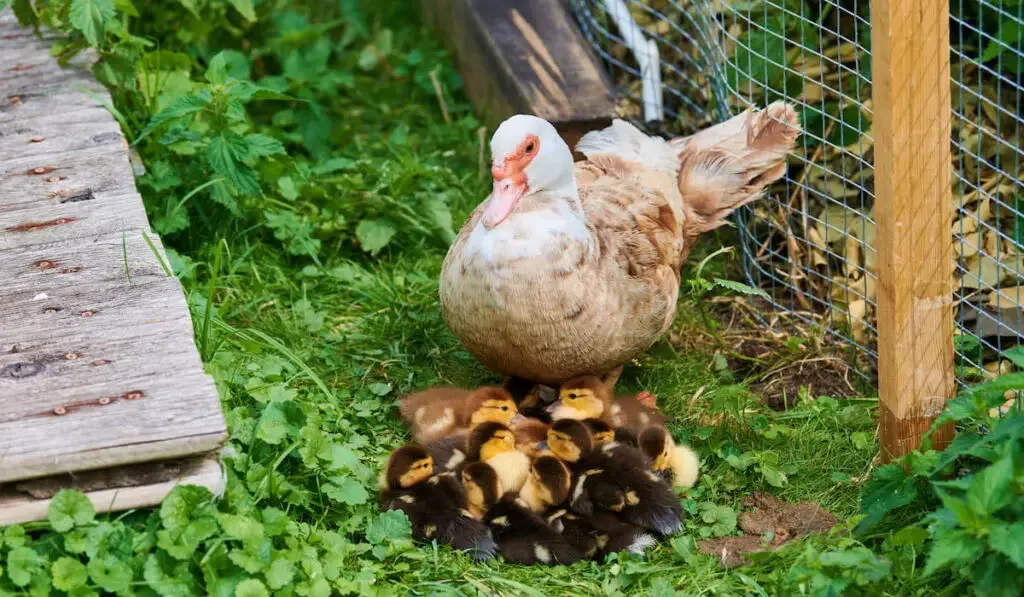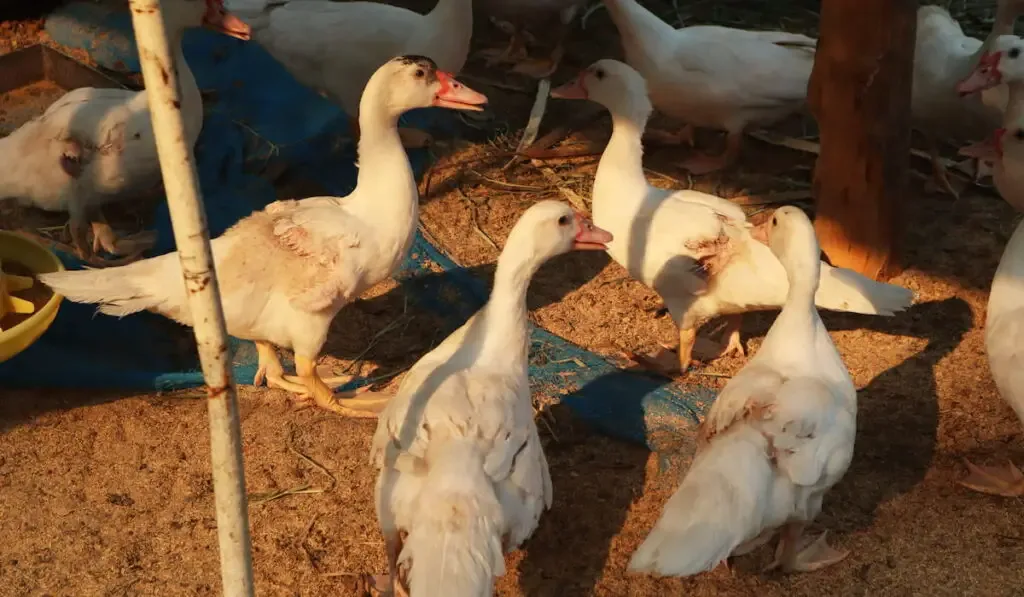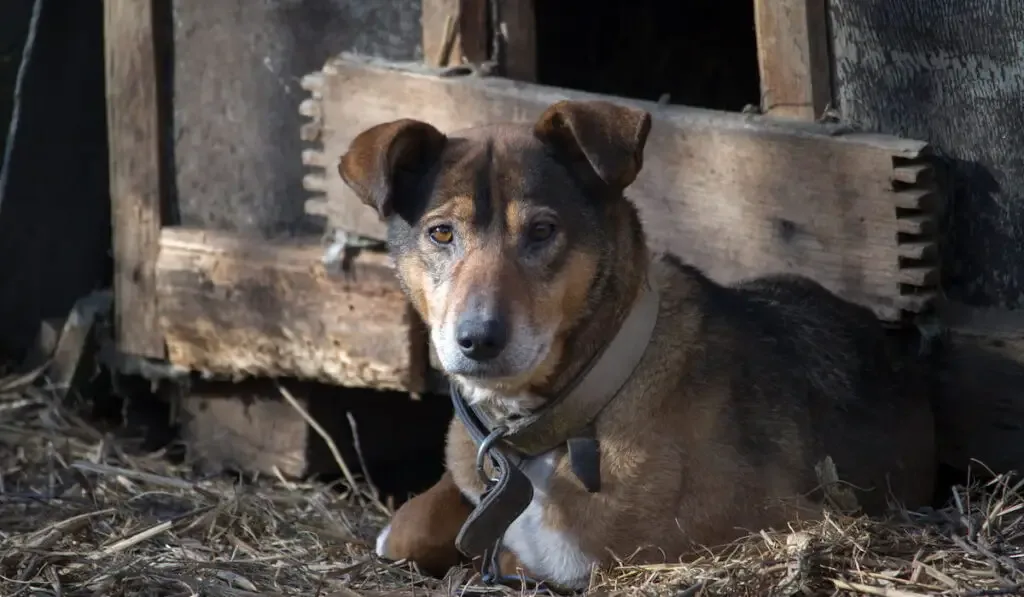Nature and the animal kingdom especially can be random and chaotic. Anyone who has kept animals that are housed in their yard or pasture knows that better than anyone. So when you see various omnivorous critters roaming around the interior of your yard like they heard a dinner bell, it’s only fair to be a little concerned.
Whether you live deep in the quiet comfort of some natural landscape or you rest your head in a bustling metropolis, you will encounter the crafty possum at some point or another. They are one of the few animals that have benefitted from the spread of civilization and can be found anywhere throughout North and South America.
So with this ever-present predator always looming, are your ducks safe from harm against the possums they may come into contact with?
Do possums eat ducks?
While ducks do not make up the usual diet of a possum, they will go after their eggs and have been known to kill a duck and pick at their insides.
So while the usual predators of a duck are a far greater concern, for the safety of your next litter of waterfowls you should still maintain a healthy dose of home defense to keep your ducks safe.

To keep your raft of ducks safe for the coming nights against nocturnal intruders, follow the tips and information in this article!
Table of Contents
Why Do Possums Attack Ducks?
Possums by nature are omnivorous and entirely satisfied with going into your trash, going after smaller animals, eating vegetables, fruits, seeds, nuts, whatever they can get their possum paws around.
While this can be beneficial for some yards and gardens as they will take care of pesky plant pests and an impressive amount of ticks, they can tear up trash bags, go after eggs and infant animals kept outside, and will leave an undesirable mess in and around your yard.
If you do keep ducks and start seeing the evasive possum (which is a feat in itself; these covert critters are very good at going undetected) you may begin to wonder if they are a threat to your duck shelter.
They absolutely are and should be treated as a real and present danger to your external pets.
Possums will happily go after duck eggs and brutalize an impending batch of bipedal buddies. They have also been reported to leave puncture marks in ducks due to their taste for the blood, which can result in them going after the insides of the unlucky bird.
This can leave unaware pet owners completely horrified when they check out their duck shelter only to witness a crime scene that resembles something out of a police procedural.

Tips to Keep Ducks Safe
Outside of possums, there are a large number of other predators you will have to worry about when keeping ducks.
While the overall focus of this article and these tips are directly related to possums, these preventative measures can also repel other unwanted pests like foxes, coyotes, falcons, owls, snakes, and even raccoons.
In the interest of keeping out all the looming dangers that prowl around your house, utilize the following steps!
Remove Trash Bags and Exposed Food
One of the biggest causes of predator infestations is the exposure of pungent trash bags and easily accessible food to the outside world. Creatures like possums, raccoons, coyotes, and even bears love an easy meal and aren’t too picky on how long it’s been sitting in your trash.
To avoid the headache of a possum, raccoon, or skunk family taking shelter near your neck of the neighborhood, be sure to keep the outside of your house as pristine as you can manage. If you can’t store your trash somewhere inside or in a shed or garage that isn’t easily accessible, you can tie off the top of your garbage.
Alternatively, you can place a hard-to-move weight like a large brick or a rock on the top of the lid to keep most curious scavengers from making a feast of your leftovers.

Keep the Coop Well-Lit
While most predators will bother your ducks from dawn to dusk, you can’t overlook the nocturnal creatures that will go after your pets. By keeping the area bright and visible you lessen the chance of creatures who prefer the dark from wandering into the enclosure.
You can also use sensor lights which will activate when they sense movement and will work well in startling the nighttime intruder and potentially run them off.
Remove Any Exposed Areas of Entry
Possums can find livable places in some very cramped spaces, so while you may feel that the few openings your coop or enclosure does have are not easily accessible, an ambitious possum is likely to prove you wrong.
By removing vulnerable spots in your fenceline or openings in your coop, you lessen the likelihood of an attack on your ducks. It can also be worthwhile to double-check the perimeter of your fence and coop regardless, as new openings could have been created since the last time you looked.
Make Your Coop Sturdier
It sounds a bit vague when stated so plainly, but making the openings of the coop less than half an inch wire mesh can keep out the prying claws of raccoons and possums. It will also make the fence more reinforced against outside trauma from larger predators.
To make the coop even more difficult to breach, replace the floor with a concrete surface that keeps the burrowing predators from sneaking into the floor of the coop.
Keep a Guard Animal Nearby

If you have a particularly well-trained dog or even the urge to buy a goose, both would work well to deter predators from bothering your mallards, especially possums. When it comes to dogs you will want to make sure the dog does not see the duck as prey and reinforce that they are part of the family.
Herding dogs tend to be naturally more inclined to the guard role for smaller breeds of animals and will take to it easier than other breeds. In addition, if you can train a cat at an early age, they will also suffice as a very real defense mechanism against possums and other animals.
Anyone who has had a mouse problem will know that sometimes just the scent of a feline around will be enough to send most running the other direction.
Both these recommendations are based on the idea that you have trained these animals for the position. You run the risk of keeping an animal housed with your ducks that may batter them around if not properly trained, so be sure to monitor interactions with them for quite a while before leaving them together unsupervised.
Conclusion
There are few fool-proof ways to keep your animals safe at all times, though you can increase your chances by utilizing the tools and tips given to you in this article.
It is important to remember that while the protection of your ducks is important, you do not want to stress out your waterfowls or ruin their health by smothering them.
A good balance of structural safety and diligence in clearing out unwanted trash or vulnerabilities around the house should keep your ducks perfectly safe!
